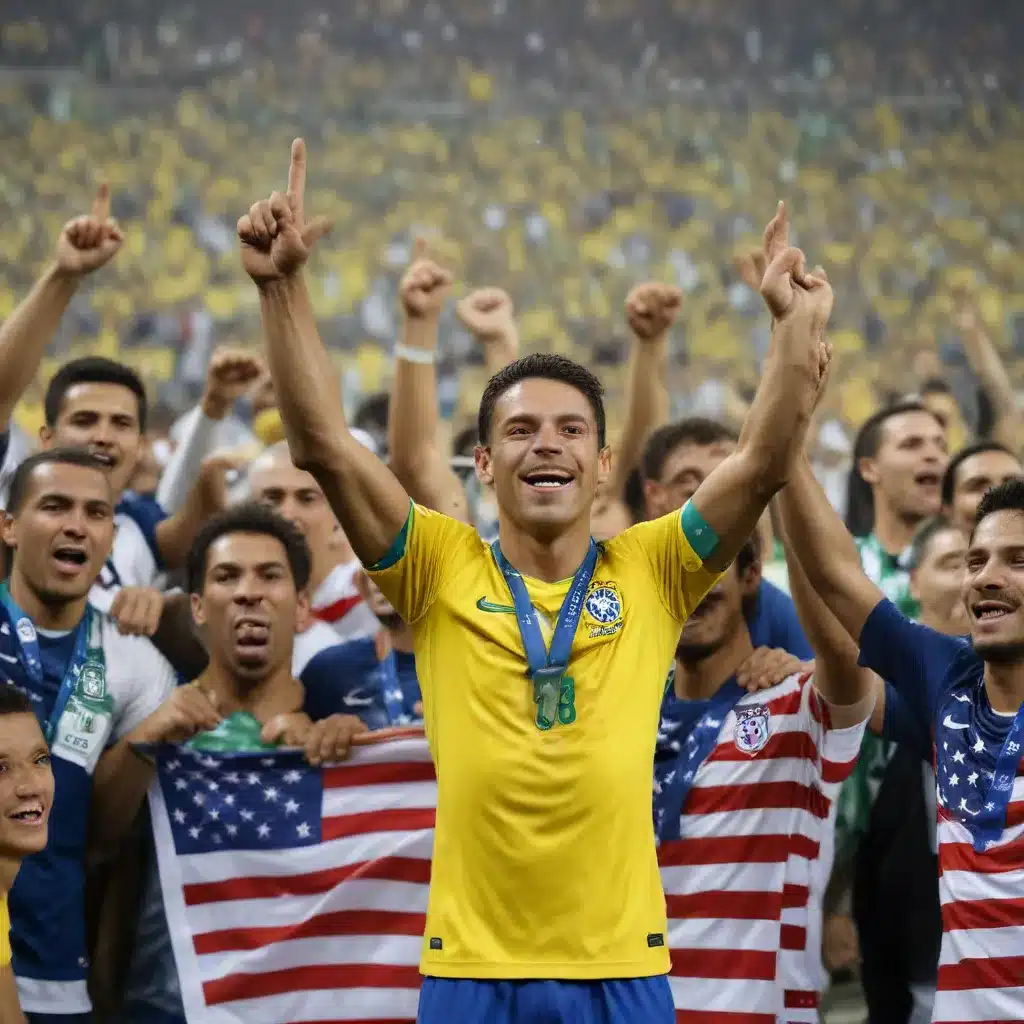
Geopolitical Implications
The unfolding geopolitical tensions surrounding a potential split within the United States could have far-reaching implications for the world of Brazilian football. As the global landscape continues to shift, the delicate web of international partnerships, alliances, and power dynamics that have long shaped the sport’s ecosystem may be poised for dramatic change.
Global Power Dynamics
The United States has historically been a dominant force in the world of international football, wielding significant influence through its membership in FIFA and CONCACAF. A US split, should it come to fruition, would undoubtedly disrupt the existing power structures that have guided the sport’s global governance. The potential for the emergence of rival governing bodies or the realignment of national associations could lead to a profound reshuffling of the football landscape, presenting both challenges and opportunities for Brazilian clubs and the national team.
Impacts on International Partnerships
Brazil’s deep-rooted football ties with the United States, forged through player exchanges, coaching collaborations, and commercial ventures, may be put to the test. The fragmentation of the American football ecosystem could strain existing partnerships, forcing Brazilian clubs and the national team to reevaluate their international strategies and seek new avenues for growth and cooperation.
Shifting Alliances
As the global order shifts, Brazil may find itself navigating a complex web of alliances and rivalries. The positioning of traditional football powers like Europe and South America could evolve, potentially opening new pathways for collaboration or competition. Brazilian football’s ability to adapt and forge strategic alliances, both within and beyond the Americas, will be crucial in shaping its future trajectory.
Brazilian Football Landscape
Domestic League Structure
The potential upheaval in the US football landscape could have ripple effects on the structure and dynamics of Brazil’s domestic leagues. The Brasileirão, the country’s premier league, has long been a source of national pride and a breeding ground for some of the world’s most talented players. However, the disruption of established international frameworks could compel Brazilian clubs to reevaluate their priorities, investment strategies, and player development models.
Top Brazilian Football Clubs
Iconic Brazilian clubs like Flamengo, Corinthians, and São Paulo, which have carved out global reputations, may find themselves navigating uncharted waters. The ability of these powerhouses to maintain their competitive edge, attract top talent, and capitalize on international opportunities could be tested by the shifting geopolitical landscape.
National Team Performance
The Brazilian national team, a perennial force in international football, may also face new challenges. The team’s ability to compete at the highest levels, attract the best players, and maintain its global relevance could be impacted by the broader changes unfolding in the sport’s ecosystem. The national team’s performance and its ability to inspire a passionate fan base could be crucial in shaping the future of Brazilian football.
Economic Considerations
Sport Sponsorships and Investments
The potential disruption of the US football market could have significant implications for the lucrative sponsorship and investment landscape that has long supported Brazilian clubs and the national team. Brands and investors may be compelled to reevaluate their portfolios, leading to shifts in the flow of capital and resources within the Brazilian football ecosystem.
Impact on Player Transfers
The global player transfer market, a vital component of Brazilian football’s economic ecosystem, may be subject to upheaval. The ability of Brazilian clubs to attract, develop, and export top talent could be influenced by the changing dynamics of international partnerships and the shifting balance of power in the sport.
Infrastructure Development
The long-term investment in football infrastructure, from state-of-the-art training facilities to world-class stadiums, has been a crucial driver of Brazilian football’s success. However, the potential economic fallout from a US split could impact the availability of resources and the prioritization of such initiatives, potentially hampering the country’s ability to maintain its competitive edge.
Sociocultural Influences
Fan Engagement and Loyalties
The fervent, passionate, and unwavering support of Brazilian football fans has long been a defining characteristic of the sport’s culture. However, the shifting geopolitical landscape and its impact on the game could test the loyalty and engagement of these devoted supporters. Navigating this new era may require innovative approaches to fan engagement and the fostering of deep-rooted connections between clubs, the national team, and their communities.
Media Landscape and Coverage
The media’s role in shaping the narrative and capturing the essence of Brazilian football has been instrumental in cultivating the sport’s global appeal. The disruption of established media partnerships and the potential emergence of new platforms could redefine the way the world experiences and consumes Brazilian football content, presenting both challenges and opportunities for the sport’s visibility and storytelling.
Grassroots Football Participation
At the grassroots level, the passion for the game runs deep in Brazil. The ability to nurture and develop the next generation of footballing talent could be impacted by the broader changes in the sport’s ecosystem. Ensuring the continued growth and accessibility of the game at the community level will be crucial in maintaining Brazil’s status as a football powerhouse.
As the world grapples with the potential ramifications of a US split, the Brazilian football landscape finds itself at a critical juncture. The country’s rich footballing heritage, its innovative spirit, and the resilience of its passionate fan base will be tested, but the opportunity to redefine and strengthen the sport’s global standing remains. The future of Brazilian football hangs in the balance, poised to navigate the uncharted waters of a shifting geopolitical landscape.

